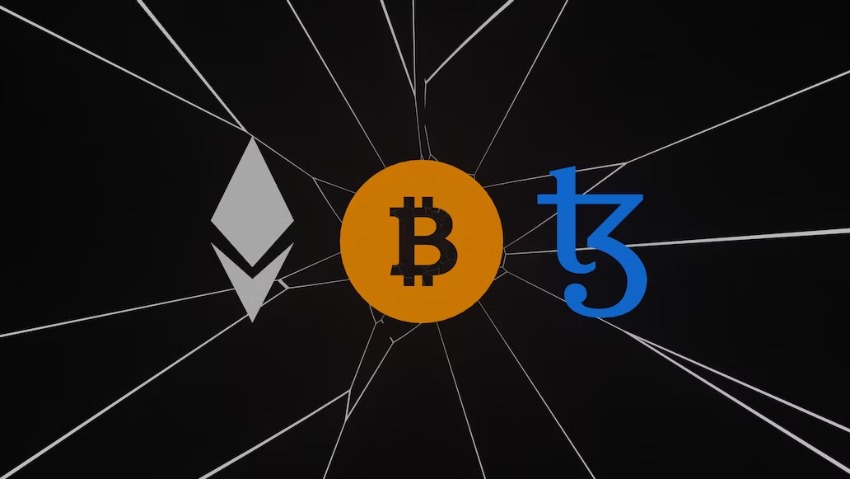In the world of cryptocurrencies, two common terms often arise: utility tokens and security tokens. These tokens play distinct roles in the blockchain ecosystem and have different functionalities and implications for investors and projects. In this article, we will delve into the details of utility tokens and security tokens, exploring how they work, their pros and cons, and their applications.
What are Security Tokens and How do they work?

Security tokens, as the name suggests, are digital assets that derive their value from an external tradable asset or an underlying investment. These tokens are subject to securities regulations and are designed to represent ownership or participation in a real-world asset or enterprise. Security tokens often grant holders certain rights, such as dividends, profit sharing, or voting rights.
Unlike utility tokens, security tokens must comply with relevant securities laws, which include registration with regulatory bodies and adherence to disclosure requirements. This regulatory oversight ensures investor protection and helps prevent fraudulent activities in the market.
What are Utility Tokens and How do they work?

Utility tokens, on the other hand, are cryptocurrencies that are specific to a particular project or platform. These tokens serve as access keys to the project’s ecosystem, granting users certain rights or privileges within the platform. Utility tokens are not designed to represent ownership in an asset or provide financial returns.
Utility tokens can be used for a variety of purposes, such as accessing services, obtaining discounts, or participating in decentralized governance mechanisms. They fuel the operation of blockchain-based platforms and encourage user engagement and adoption.
Pros and Cons of Security Tokens and Utility Tokens
Security Tokens:
Pros:
1. Investor Protection: Security tokens operate under regulatory frameworks, offering investors legal protection and transparency.
2. Asset Ownership: These tokens represent ownership in real-world assets, providing investors with a direct claim on the underlying value.
3. Potential for Dividends: Some security tokens offer profit-sharing mechanisms, enabling investors to receive a portion of the project’s earnings.
Cons:
1. Regulatory Compliance: Complying with securities regulations can be complex and time-consuming, requiring substantial resources and expertise.
2. Limited Accessibility: Security tokens often have restrictions on who can invest, making them less accessible to retail investors.
3. Market Liquidity: Liquidity can be a challenge for security tokens due to regulatory restrictions and limited trading venues.
Utility Tokens:
Pros:
1. Increased Platform Adoption: Utility tokens incentivize users to participate in and contribute to the platform’s ecosystem, driving adoption and network effects.
2. Flexibility: Utility tokens can be designed for specific use cases, offering diverse functionalities within a blockchain project.
3. Crowdfunding: Utility token sales, known as Initial Coin Offerings (ICOs), provide a means for projects to raise capital and fund development.
Cons:
1. Uncertain Legal Status: Utility tokens often exist in a regulatory gray area, with potential implications for issuers and investors.
2. Volatility: Utility token prices can be highly volatile, influenced by market speculation and sentiment.
3. Limited Rights: Unlike security tokens, utility tokens do not grant holders ownership rights or financial participation in the project.
Difference between Utility Token vs Security Token
The key difference between utility tokens and security tokens lies in their purpose and regulatory treatment. Utility tokens primarily serve to access a platform or project, incentivizing user engagement, while security tokens represent ownership or participation in an asset or enterprise.
Security tokens require compliance with securities regulations, ensuring investor protection, while utility tokens often operate in a more unregulated or semi-regulated environment.
The Application of Security Tokens and Utility Tokens
Security Tokens:
1. Real Estate: Security tokens enable fractional ownership of real estate, providing liquidity and diversification opportunities for investors. They make a great security for Real Estate without bringing in the risk of scams.
2. Venture Capital: Security tokens can revolutionize traditional venture capital by offering more efficient and accessible investment opportunities.
3. Asset Tokenization: Security tokens facilitate the tokenization of assets like artwork, precious metals, and intellectual property, unlocking liquidity and fractional ownership possibilities.
Utility Tokens:
1. Decentralized Applications (DApps): Utility tokens power DApps, allowing users to interact with smart contracts, access services, and participate in decentralized governance. DApps are the core application of why Utility tokens are so powerful and are accepted by the crypto community.
2. Rewards and Loyalty Programs: Utility tokens can be used to incentivize user behavior, rewarding loyalty and encouraging engagement within a platform. By incentivizing the audience, companies can use Utility token as a reward token.
3. Gaming and Entertainment: Many blockchain-based gaming and entertainment platforms use utility tokens to enhance gameplay, enable in-game purchases, and create unique digital assets.
Final Verdict
Both utility tokens and security tokens have their place in the evolving landscape of cryptocurrencies and blockchain technology. Security tokens offer investment opportunities backed by real-world assets and regulatory compliance, while utility tokens drive user adoption and provide access to decentralized platforms.
Understanding the differences between these token types and their respective applications is crucial for investors, entrepreneurs, and enthusiasts navigating the blockchain space.









